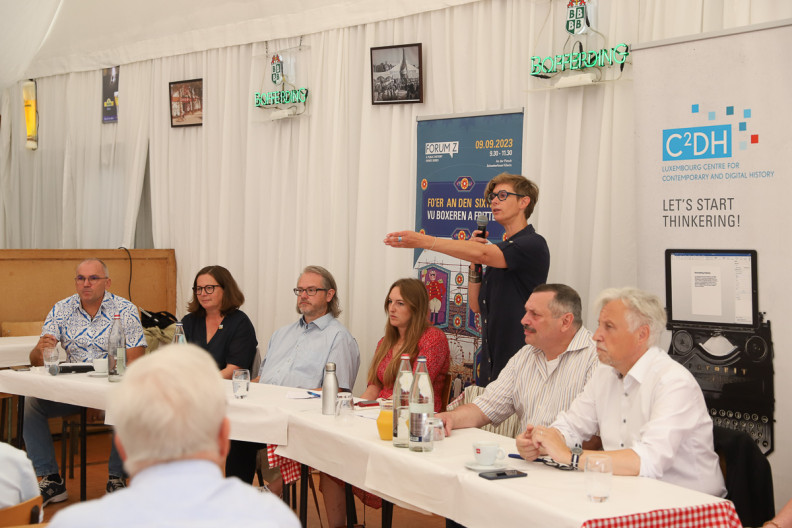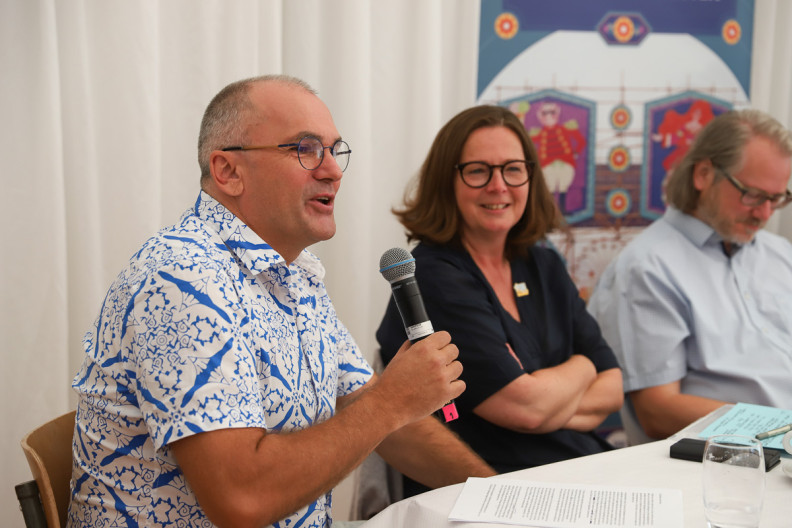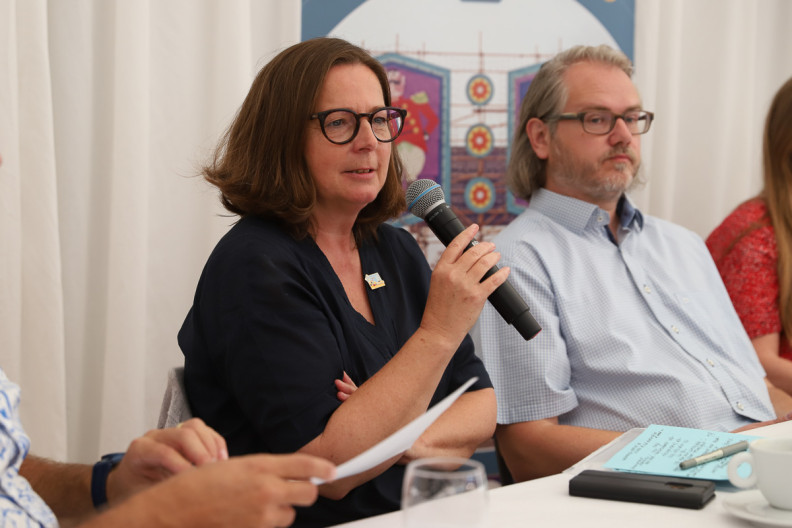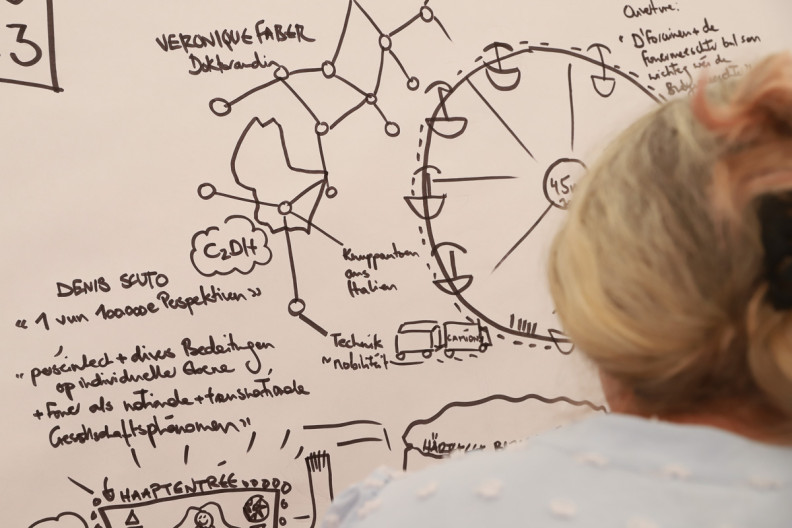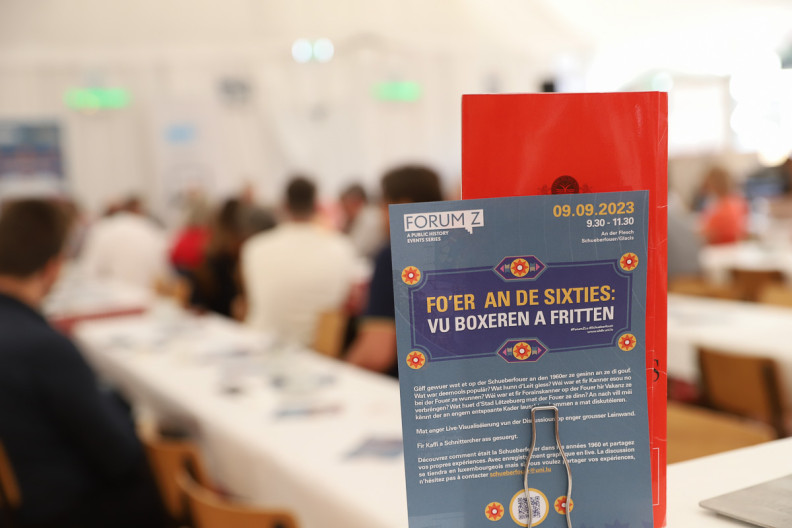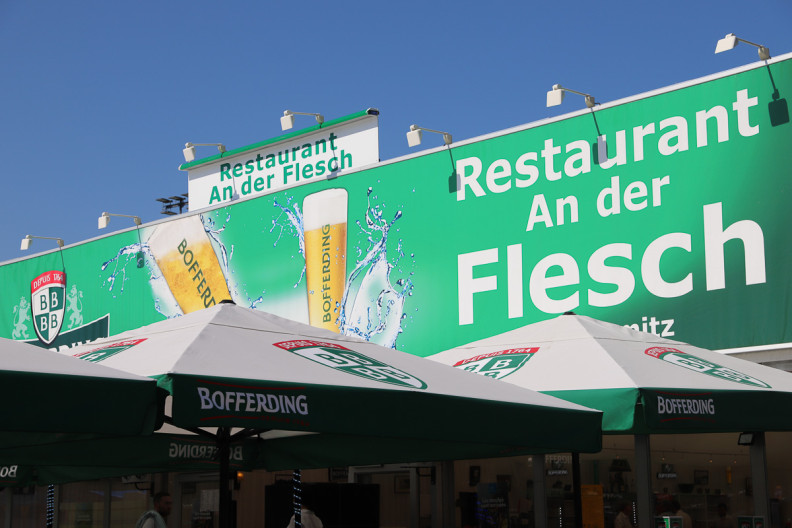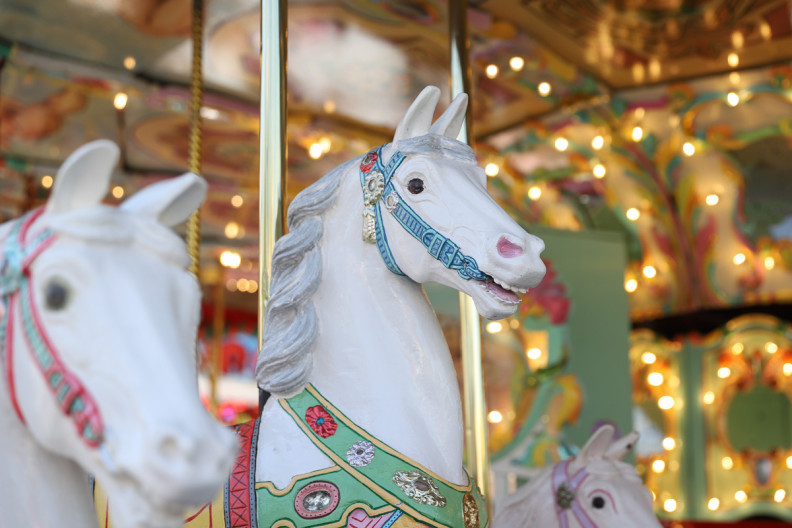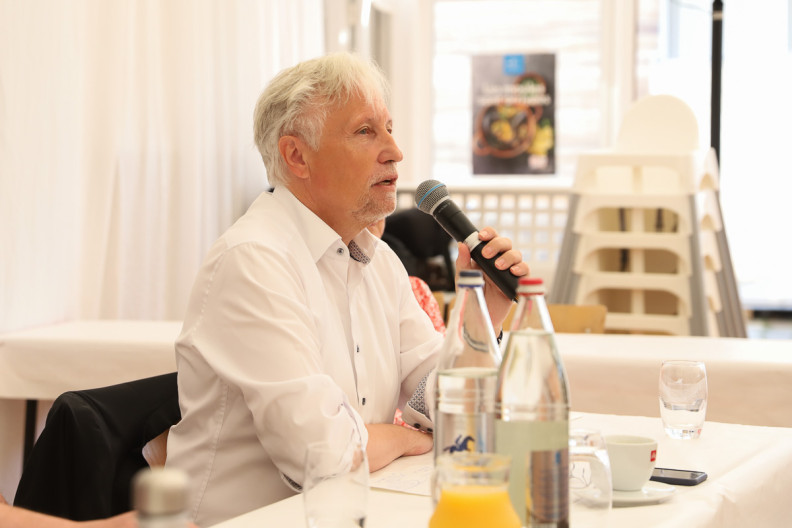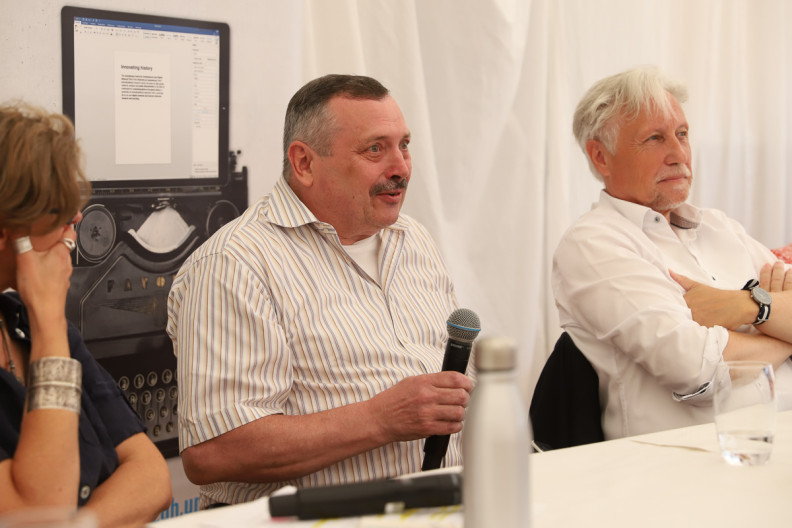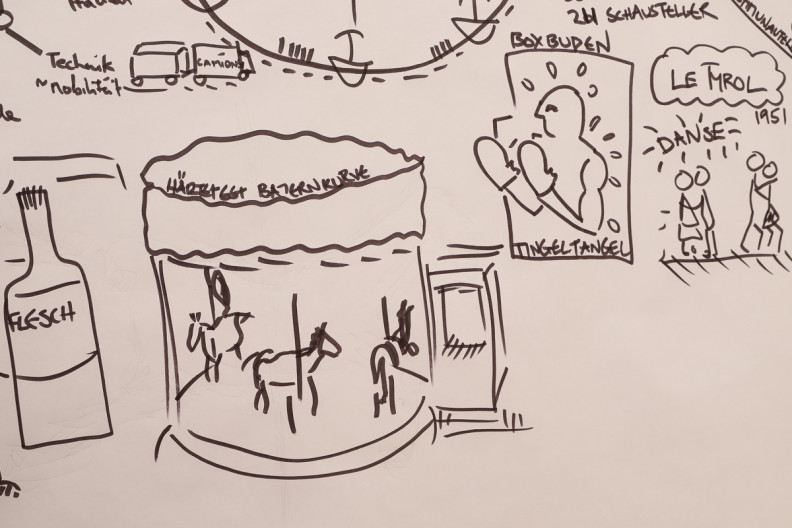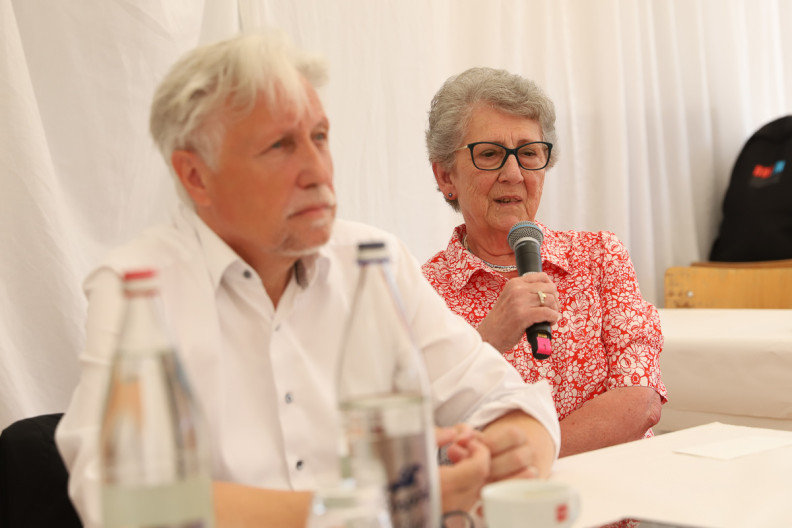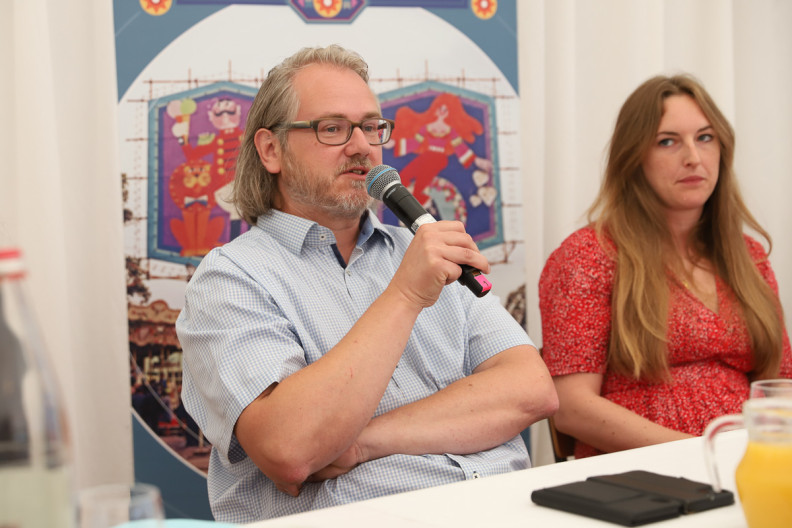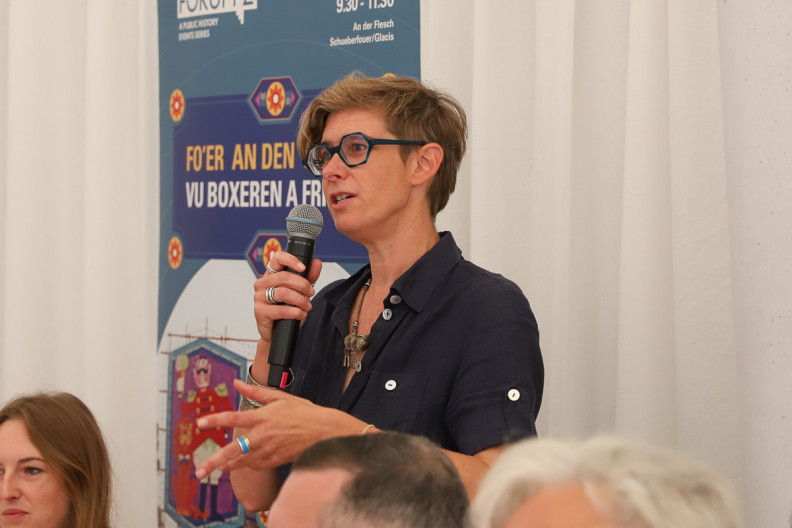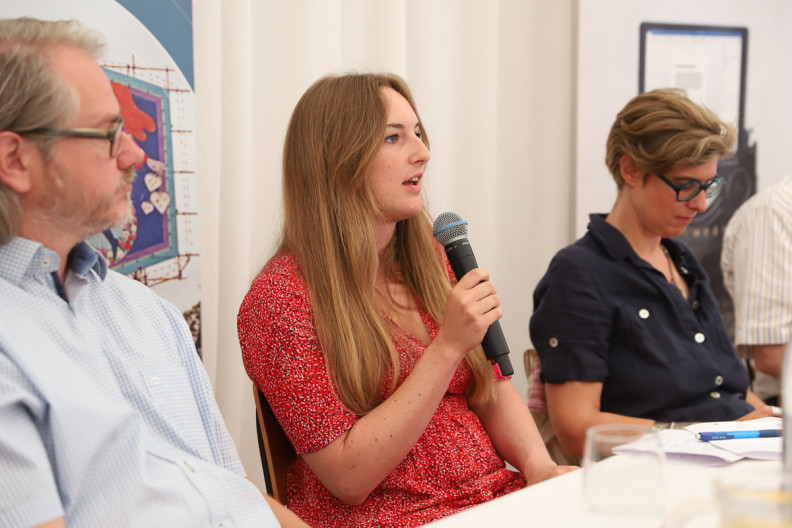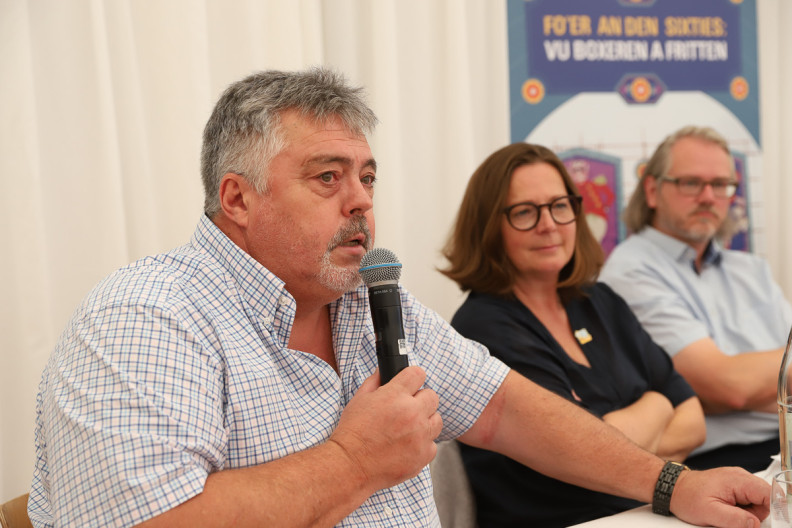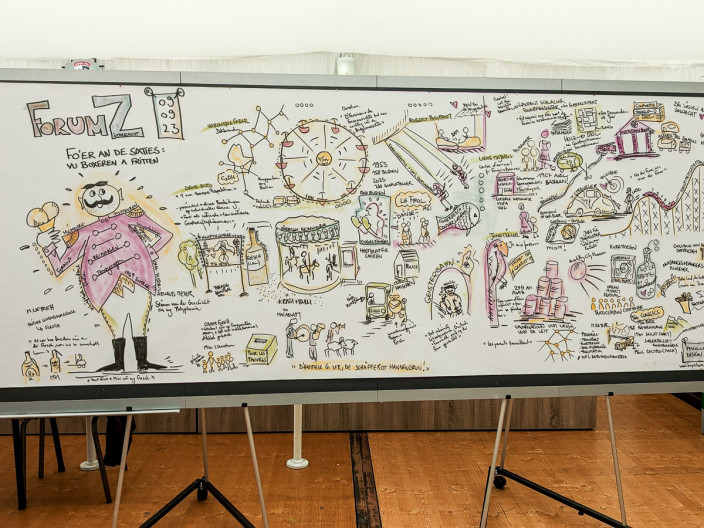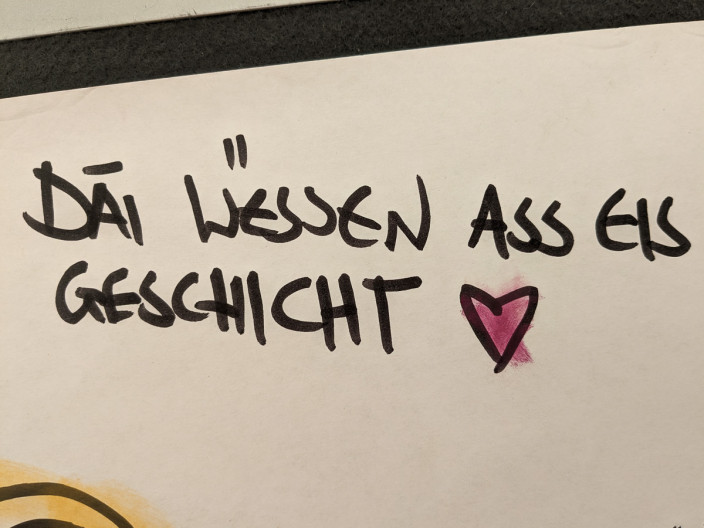On 9 September 2023, in collaboration with Luxembourg City Council and the restaurant “An der Flesch”, the C²DH held a Forum Z about Luxembourg’s largest funfair at the fair itself. About 50 people met over coffee and croissants on a Saturday morning at the restaurant “An der Flesch” to discuss what it was like to visit, work at or organise the “Schueberfouer” during the long 1960s.
The advantage of this approach to discussing historical knowledge was that the information shared contributed to the knowledge of everyone present, not just one researcher. The distinction between academic and personal knowledge was not relevant and everything said had equal value in this context. It is important to understand such an event as a process rather than in terms of outcomes and results.
After a brief introduction about the importance of contemporary history and the topic by Assistant Prof. Dr Denis Scuto from the C²DH, several panellists spoke on different aspects. Véronique Faber, a doctoral candidate at the C²DH who is writing a thesis on the national, transnational and transregional history of the Schueberfouer in the late 1960s, gave an overview of the activities that characterised the fair in the long 1960s, such as the introduction of a lavish opening ceremony and the various stands with variety artists and boxers, with “teasers” in front of the stands attracting huge crowds of people.
The historian Dr Robert L. Philippart shared some of his insights into the role of the cafés on Allée Scheffer during the funfair period and some of his personal experiences as a teenager going to the fair. Liette Majerus, who ran the “Centre Accueil pour enfants des forains” from the 1960s until 2000, explained how this day care centre for the children of fairground workers was organised and what activities the children took part in every afternoon from 2 o’clock to 6 o’clock. The centre was an initiative launched by Henriette Werner, wife of the then Prime Minister. One of the children who attended the day care centre, Jean Müller, talked about growing up at the fair and visiting Henriette Werner, who lived just around the corner. He received his First Communion at the Schueberfouer and can be seen in some press cuttings next to the Mayor cutting the tricolour ribbon at the opening of the fair.
Laurent Schwaller, the current Fouermeeschter in charge of organising the fair for Luxembourg City Council, described his role and the many tasks involved in ensuring that the more than 200 show people and travelling vendors are ready in time for the opening of the fair. Finally, Kyra Thielen from Lëtzebuerg City Museum highlighted the significance of the Schueberfouer in the history of Luxembourg City and invited people to contact her to contribute to the oral history project or the museum collection.
Collette Flesch, who was Mayor of Luxembourg City in the 1970s, shared several anecdotes from her time as Mayor, and she also told the group how, as a teenager, she loved to ride scooters, even though her parents did not allow it. Henri Werner, Henriette Werner’s son, recalled his summers helping at the day care centre. He also remembers the impressively tall bottle of wine that customers used to have to pass through to enter the restaurant “An der Flesch”. Patrick Weyrich, the owner of “An der Flesch”, added to this by explaining the history of the restaurant, which his mother took over in the 1980s after having managed other restaurants at the fair. Historian Steve Kayser shared his knowledge about the technological innovations of the time and how they paved the way for faster and higher rides.
Several other participants added to the discussion with their memories of visiting the fair or working there as students. The discussion was graphically recorded on a 4 x 2-metre wall by Dr Katy Fox from Mycelium, giving a real-time overview of what was being shared. Seeing the discussion unfold on this large screen during the event was a creative way of structuring and contextualising the narrative. The event was moderated by Magali Paulus from the organisation CELL, who concluded by confirming that the Schueberfouer is still important to people and is part of their past and present.



